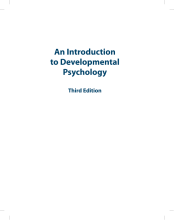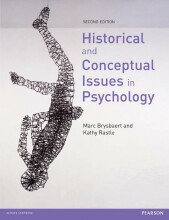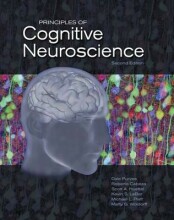Kensinger 2009: Cognition in aging and age-related disease
14 important questions on Kensinger 2009: Cognition in aging and age-related disease
How do we call the process where there are more elderly, and the elderly are getting older on average?
With what physical and mental troubles are the elderly coping?
- cardiac and vascular diseases
- diseases on internal organs
- broken bones
- cancer
- diabetes
- alzheimer's disease
- parkinson's disease
- huntington's disease
Which neurobiological aspects decline when aging?
- sensory systems
- motor systems
- sleep and biological rhythms
- hormonal changes
- Higher grades + faster learning
- Never study anything twice
- 100% sure, 100% understanding
Describe the changes in sleep and biological rhythms when aging.
- flattening of the 24 hour rhythm
- fewer hours of (deep) sleep
- highest peak shifts from afternoon till morning
- preference / increasing need for naps
causing;
- reduced cognitive performance
- more optimal functioning in the morning
- weaker memory consolidation
What causes the cognitive decline when aging?
- last in, first out
- the prefrontal cortex is the last to mature, the first to decline
What are the three cognitive domains of executive functioning that decline because of the decline of the prefrontal cortex?
- stability vs. flexibility; switching between tasks, shielding of goals
- working memory
- action control/action override
What are the cognitive aspects that decline when aging?
- executive/regulatory functions
- internal record
- memory
- intelligence
- speed of information processing
What are cognitive functions that do not decline?
- creativity
- language skills and capabilities
- social skills and capabilities
- perception
- crystallized knowledge; might improve
- wisdom; might improve
How can cognitive functions be reserved when aging?
- physically and mentally staying active
- learning new things and tricks
What are the social-emotional changes in aging?
- living with limitations; limited capability, hobbies, mobility
- smaller world; reduced group of friends
- purpose in life; changes in health, losses of partners and friends, depression, life completed.
What are factors of individual differences in aging?
- health and lifestyle in adult life
- nutrition
- physical and mental exercise
What are the symptoms of dementia?
- short term memory problems
- cognitive problems in at least 1 domain other than memory
- influences normal daily functioning
- clear conscious, non hallucinating
What are other conditions associated with dementia?
- cerebrovascular deviations in white matter
- atherosclerosis
- memory complaints
- depression
- slowness, apathy
- rigidity
all these also go for normal aging
What are the brain regions of which declines cause dementia?
- amygdala
- medial temporal lobe
- prefrontal circuits and cognitive functions supported by it
The question on the page originate from the summary of the following study material:
- A unique study and practice tool
- Never study anything twice again
- Get the grades you hope for
- 100% sure, 100% understanding
































